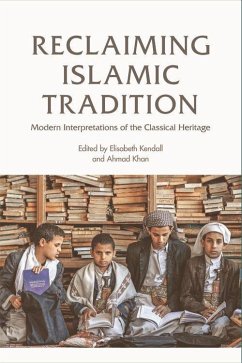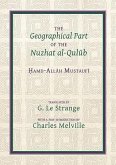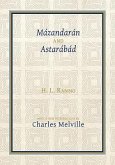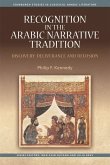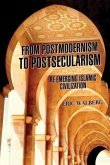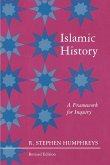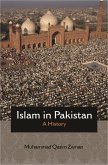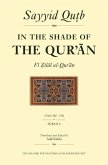'Ranging from law to exegesis and poetry, this volume presents prodigious evidence that tradition is not fragile and static, as many assume, but malleable and often re-interpreted. The contributors skilfully show that the past is not "a foreign country", but an intimate part of the contestation over authority and meaning in modern Muslim societies.' James Piscatori, Durham University Explores how the classical Islamic tradition has been reshaped in the modern Islamic world Recent events in the Islamic world have brought to our attention the formidable potency of the classical Islamic tradition. Debates over reform, revival and change, whether of a political, religious or economic nature, revolve around an engagement with Islamic history, thought and tradition. This book examines such debates by exploring modern texts, groups and figures that stake out a claim to pre-modern traditions in disciplines as diverse as Islamic law, Qur'anic exegesis, politics, literature and jihad. It looks at how the classical Islamic heritage now functions in regions as diverse as the Middle East, North Africa, Iran and the Indian subcontinent. Key Features . Brings clarity to modern trends, events and debates in the Islamic world by placing them in their historical context . Brings together experts of the medieval and modern Islamic world . Challenges the tendency to place modern scholars and groups in the Islamic world on an ideal spectrum running from modernism to Islamism . Calls for a new approach to modern Islamic and Middle Eastern studies requiring a deeper understanding of the role and function of the classical Islamic heritage Ahmad Khan is Postdoctoral Researcher at Universität Hamburg, Asien-Afrika-Institut. In 2014-15, he was Lecturer in Islamic Studies and History at the University of Oxford, Faculty of Oriental Studies.His current research focuses on medieval and modern Islamic history. Elisabeth Kendall is Senior Research Fellow in Arabic and Islamic Studies at Pembroke College, University of Oxford. Her books include Twenty-First Century Jihad (with Ewan Stein, 2015), Literature, Journalism and the Avant-Garde (2006) and Media Arabic (2nd edition 2012). Cover image: The Grand Mosque is the oldest mosque in the Yemeni capital, Sana'a © Mohannad Khatib@Mediumshot/Getty Images Cover design: [EUP logo] edinburghuniversitypress.com [please note new web address] ISBN 978-1-4744-0311-5 Barcode

